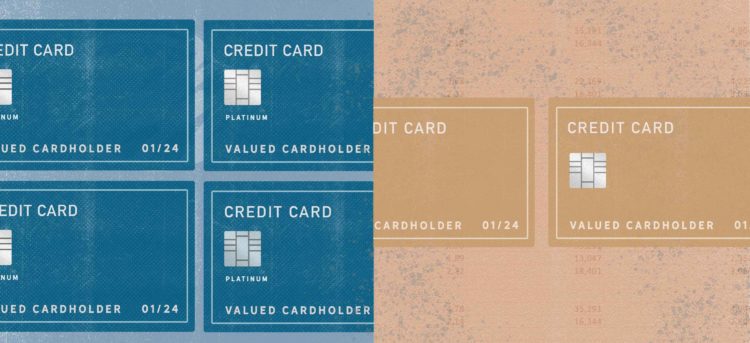Business owners are leveraging their personal credit in a major way, according to new data from Nav.
Nav analyzed anonymized personal credit card usage data from 143,004 of its small business customers and 128,281 of its consumer customers. Business credit cards were excluded from the data.
While consumers carry an average of 2.32 credit cards, small business owners average at 4.78 cards. The average total limits on those cards among the two groups mirrors this as well, as average consumers hang in at about $18,401, and business owners at $35,291. What’s surprising about the data is that it pertains to personal cards — not business credit cards, which generally don’t show up on personal credit reports unless the cardholder defaults or misses payments.
Another Nav survey found that 24% of small businesses owners used personal credit cards the last time their business needed funds. This not only confirms that finding funding for a business is difficult, but that some business owners could be over-leveraging their personal credit to fund their business. (You can check your business credit data and get matched up with financing options that fit your profile for free at Nav.)
While credit cards aren’t inherently bad, they are certainly not all created equal. Business owners, for whom time is already at a premium, spend an average of 33 hours searching and applying for credit. Oftentimes credit cards can provide a much quicker application process than, say, a line of credit or business loan, and can give you quicker access to funds. Business credit cards have a similar application process to personal credit cards, though they require some additional information about the business. Recently, a new regulation added a component to the process for businesses with more complex ownership as well.
When business owners use personal credit cards to fund their business, the balances rise quickly and can impact their personal credit scores significantly. Business credit card balances are often not reported to consumer credit reports — for most issuers, the cards will only appear on a cardholder’s credit report if there has been a default or late payment. Business owners looking for cash right away can also take advantage of business credit cards with introductory offers of 0% interest. Remember that these are not 0% interest cards, and that the promotional period will last anywhere from nine to 15 months.
Multiple issues can arise when you use personal credit cards to fund your business. By maxing out your cards, you can ruin your credit score. By leaning mostly or exclusively on personal credit cards, you miss out on opportunities to build a strong business credit profile and access better financing options for your business. (Take a look at this list of credit cards that can help you build business credit.) When the time comes to file your taxes, you may be able to write off the interest from your business credit cards, but more than likely can’t do the same for your personal cards.
By finding and using the best financing options available, you can meet your goals and have the money on hand that your business needs, and extend the life of your small business.
This article was originally written on May 24, 2018 and updated on October 25, 2019.


Have at it! We'd love to hear from you and encourage a lively discussion among our users. Please help us keep our site clean and protect yourself. Refrain from posting overtly promotional content, and avoid disclosing personal information such as bank account or phone numbers.
Reviews Disclosure: The responses below are not provided or commissioned by the credit card, financing and service companies that appear on this site. Responses have not been reviewed, approved or otherwise endorsed by the credit card, financing and service companies and it is not their responsibility to ensure all posts and/or questions are answered.